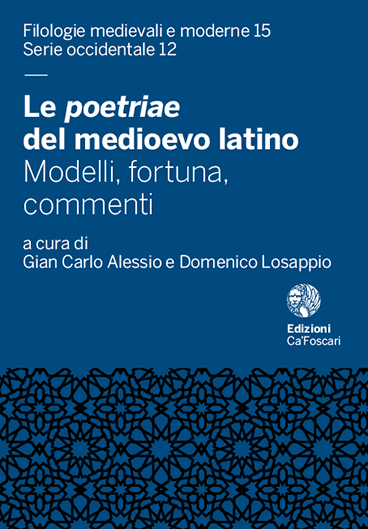- search 249 views
- file_download 4 download
- keyboard_capslock metadata
-
mark_email_readIscriviti alla newsletter
La construcción retórica de los discursos en el Laborintus de Everardo el Alemán
abstract
Eberhard the German’s Laborintus is one of the artes poetriae that has been influenced by Geoffrey de Vinsauf’s Poetria nova. In line with Greoffrey de Vinsauf’s teaching on prosopopoeia, i.e. one of the most important figures that an author must use, in the first 252 lines of his Laborintus Eberhard the German introduces at least four discourses in which Nature, Fate/Fortune, Philosophy and Grammar expose and argue their importance in man’s life. The analysis of both the reasons and actions and the form in which they are exposed (elocution) contains the author’s vision of the universe and opposes positive and negative things (res), which are represented by rhetorical elements such as docere, commovere and persuadere. Such elements can define the essential role the knowledge of grammar, rhetoric and philosophy plays in the education and salvation of men.
Keywords: Allegory • Laborintus • Politic discourse • Humanism • Rhetoric




